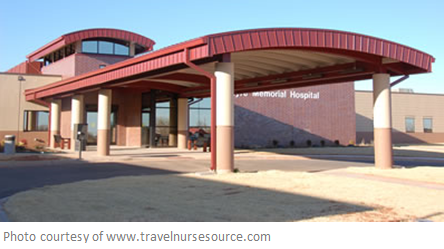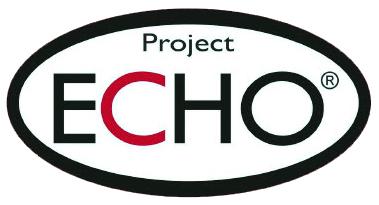|
TELEHEALTH BEAT
HTRC's monthly telehealth bulletin
|
|
Heartland Telehealth Resource Center is here to meet your telehealth needs. We are a government-sponsored organization serving Kansas, Missouri and Oklahoma, with a wide range of services, and many of them are free. Email us at questions@HeartlandTRC.org or call us at 877-643-HTRC.
|
Dietary consultations: Now available through telemedicine
The Salina Regional Medical Center (SRHC) has worked hard to position themselves at the forefront of telemedicine adoption. In August, 2014 they were recognized as one of
HealthCare's Most Wired Hospitals, and last fall they added a new telemedicine service to their repertoire, dietary consultations. By offering these consultations through telemedicine, patients are able to reduce their travel time to the clinic and avoid missing work or other obligations to receive the care they need.
At SRHC, patients can use the telemedicine consultations for some, or
all of their consultation. Consultation topics range from diabetes and weight management to infant and prenatal nutrition. Sandi Martens, the dietician who provides the telemedicine consultations, described how offering the telemedicine option has opened the door to individuals who would have otherwise never tried the consultations.
"I have had a situation where the initial visit was a telemedicine visit but the follow-up was done in person at my office
so we could download her insulin pump...This meant the patient had to travel, but she was willing to do so after our initial telemedicine visit. The telemedicine visit was enough to show her she could benefit from my assistance."
Martins recommended that other clinicians who are wary of using the technology give it a chance, especially if they want to enhance their quality of care and improve their flexibility.
|
August 27-28
The annual mHIT conference brings national experts on health care informatics and telemedicine to the Midwest to discuss the current state of the industry, and cultivate strategies for empowering and engaging organizations.
|
|
Telehealth to the rescue: Oklahoma hospital back in business
A few months ago, the Sayre Memorial Hospital was forced to close down, leaving the rural community of Sayre, Oklahoma without access to local medical facilities. Thanks to telehealth and
People's Choice Hospital, Sayer Memorial's closure might not be
permanent after all.

The 31 bed, non-profit hospital had been adversely affected by declining Medicare reimbursements, a lack of Medicaid expansion in Oklahoma and a struggling local economy. When the hospital finally made the tough decision to close its doors, it cited "continual financial strain" as the reason for the closure.
Sayre Memorial Hospital is one of many rural hospitals struggling to stay afloat in recent years. In fact, according to research done at the
Sheps Center at the University of North Carolina,
almost 1 in every 20 rural hospitals has closed its doors since 2010, 72 in total. Unlike large facilities in more populated areas, rural hospitals often are forced to operate on very thin margins, meaning that small cuts or changes to reimbursement can be enough to put them in the red.
In order to survive, rural hospitals are adapting to the ever-changing medical landscape. Fortunately, that is exactly what Sayre Memorial Hospital plans to do. A few weeks ago,
People's Choice Hospital (PCH) announced plans to buy and reopen the Sayre Memorial Hospital. Their solution to the existing financial woes of the clinic is to utilize as much telemedicine as possible.
|
Compacts aim to increase telehealth practice in Kansas and Oklahoma

One of the many benefits of telehealth is that it knows no borders. In theory, this allows any provider to see any patient, regardless of their location. Unfortunately, things get more convoluted in practice. The complexity of state licensing requirements is one of the biggest barriers impeding telehealth adoption among physicians and nurses.
Currently, if a provider wants to practice telemedicine he or she must be licensed in the state where the patient resides. This is especially problematic in rural communities near state lines. However, these limitations may be nearing an end due to the growing popularity of interstate licensing compacts. These compacts work by standardizing medical licenses across state lines so it is easy for providers to obtain a multi-state license.
This month, both Kansas and Oklahoma have approved medical licensing compacts. In Kansas, a bill that will allow Kansas to standardize their licensing requirements and join the Interstate Medical Licensure Compact was approved on May 13. The compact now has 15 states, with another 12 already having introduced legislation to join the compact.
|
Project-ECHO is making waves on a national scale
People living in rural areas face many challenges when it comes to accessing healthcare, but a recent piece of legislation may bring a solution to this persistent problem.
In April, Senators Orrin Hatch of Utah (R) and Brian Schatz of Hawaii (D) introduced a

bipartisan bill to the United States Senate known as the
Expanding Capacity for Health Outcomes Act
. The bill plans to use telemedicine to connect primary care providers with
specialists through a program known as Project ECHO. By connecting primary care providers with specialists via videoconference, providers can be trained and
mentored on a number of specialties. This enables them to provide the specialty care to their patients, thus expanding the availability of specialty care in rural communities.
Senator Hatch believes the bill will be tremendously beneficial for states with large rural populations such as his home state of Utah.
"It's vital that we do everything we can to ensure that patients have access to quality health care - no matter where they live. By using technology to connect patients and providers, this bill will benefit Utahns living in rural areas by helping them receive the care they need," said Hatch in a public statement after introducing the bill."
|
USDA Community Connect Grant
The USDA has announced new funding for "communities without broadband service to provide residential service and connect facilities such as police and fire stations, healthcare, libraries and schools." There is still $11,740,000 of grant funding available. The deadline to apply for this grant is June 17, 2016. The priority areas for this grant are rural regions with the greatest need. The grant is open to state and local governments, federally-recognized tribes, non-profits and for-profit corporations.
|
 |
|
Project ECHO
Project ECHO is a program using telemedicine to revolutionize medical education and improve access to specialty care. Project ECHO, which was developed by the University of New Mexico School of Medicine, works by connecting primary care clinicians with specialist teams via videoconference.
Each specialty area has its own ECHO, such as autism or chronic pain. ECHO teams meet regularly to hear cases from providers and make recommendations.
|
|
|
Heartland Telehealth Resource Center | questions@HeartlandTRC.org |
4330 Shawnee Mission Parkway Fairway, KS 66205
|
|
|
|
|